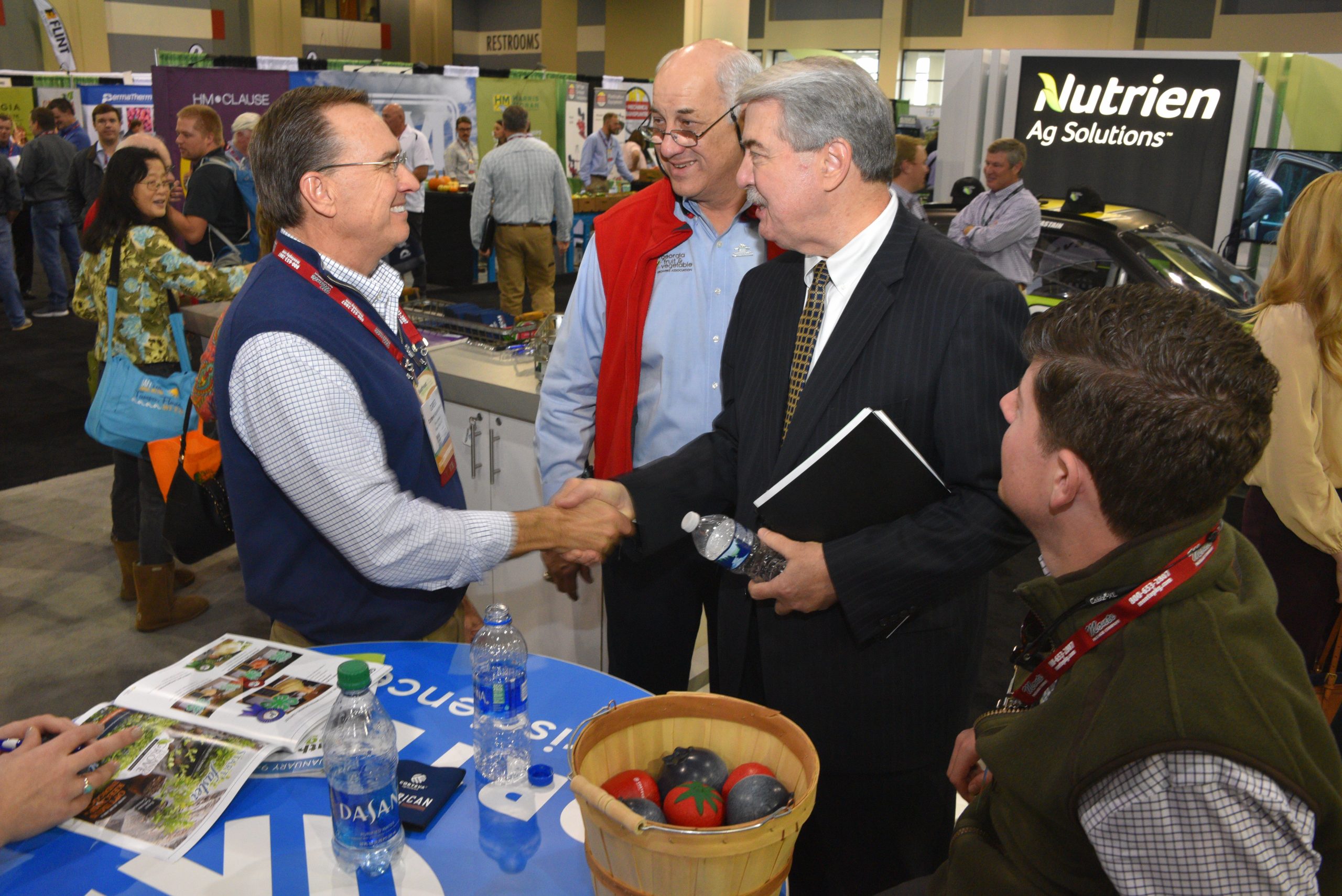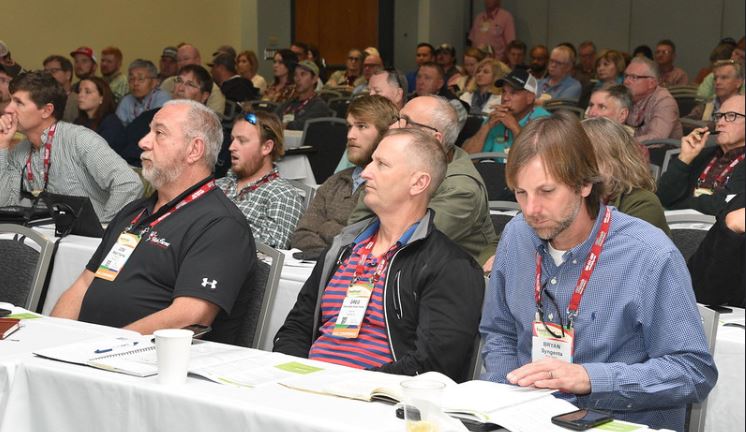
By Clint Thompson
The Southeast Regional Fruit and Vegetable Conference (SERFVC) in Savannah, Georgia, educated growers and industry leaders about production practices for 13 different commodities during the four-day event, held Jan. 9-12. The educational programs and trade show attracted more than 3,300 participants and vendors.
Sessions were aimed at introducing growers to citrus production in Georgia, teaching interested producers about the different components of hemp production, providing strategies for growers to be more successful in world trade, and other information on key crops for the Southeast.

“It’s a lot of information being provided to growers: how to better produce the new products that are on the market, new insecticides and new opportunities for pest management,” said Charles Hall, executive director of the Georgia Fruit and Vegetable Growers Association, which organizes the SERFVC. “We try to make sure we’re staying on top of what’s going on within the industry — those things that our growers are looking for as far as new information.”
CITRUS IN
THE SPOTLIGHT
The conference highlighted new commodities this year, including an entire
session devoted to the citrus industry. Lindy Savelle, president of the Georgia
Citrus Association, said the industry in Georgia is doubling every year. She
estimated that there were 1,000 acres in Georgia devoted to citrus production
at the end of 2019 and anticipates at the end of this year, there will be
approximately 1,900 acres. With talks devoted to disease control, insect
management and budget planning, Savelle believes the inclusion of citrus in the
educational sessions at this year’s SERFVC was “huge.”
“I think having the ability to come to this conference and put on a citrus session gives the people the opportunity to just check it out … It allows them to come hear parts of it that they might not have known about,” Savelle said. “We had a session on citrus economics. I think that’s kind of the first step for people” to see if it’s something they can afford.
TACKLING
WORLD TRADE
The event also put world trade in the spotlight. U.S. Senator David Perdue
addressed the issue when he spoke at the awards breakfast on Jan. 11. Trade was
also the focal point during a special panel session. Georgia farmer Jerome
Crosby talked about how the idea of ‘fair trade’ needs to be improved if
American farmers are to benefit from the products they produce.
“The importance of the discussion today is that it’s the beginning of a process whereby we might have the ability to influence trade that affects our industry, not only in blueberries but in fruits and vegetables as well,” said Crosby, who farms about 350 acres of blueberries in Willacoochee, Georgia.
The trade discussion preceded the launch of the American Grown initiative. It emphasizes the importance of growers and industry leaders encouraging the public to support agriculture and products produced in the United States.
The 2021 SERFVC will take place on Jan. 7–10 at the Savannah International Trade & Convention Center. For more information about the conference, visit SERegionalConference.org.
The VSCNews team was part of the SERFVC again this year and attended many of the educational sessions offered. Stay tuned to VSCNews.com for additional reports from the conference.









